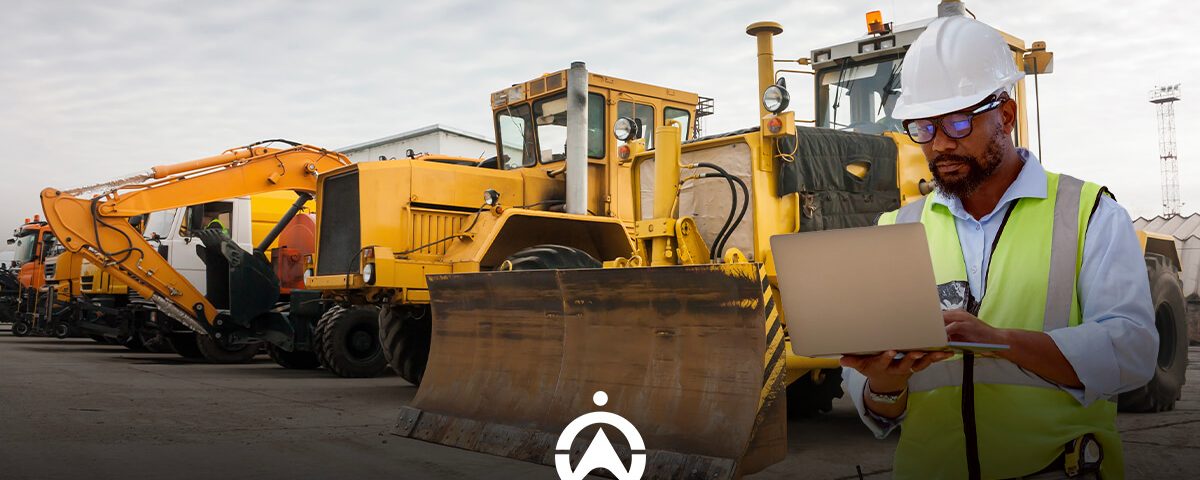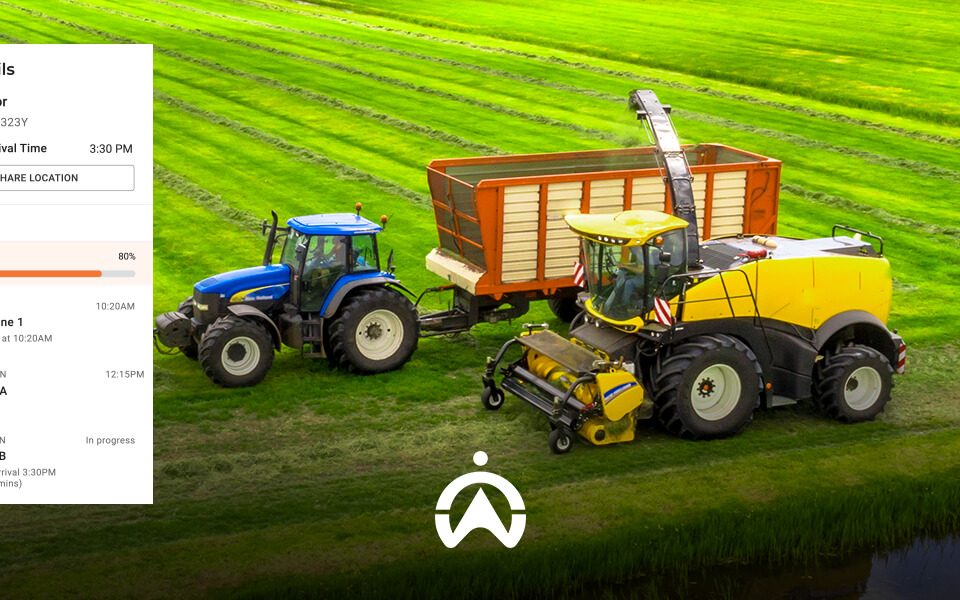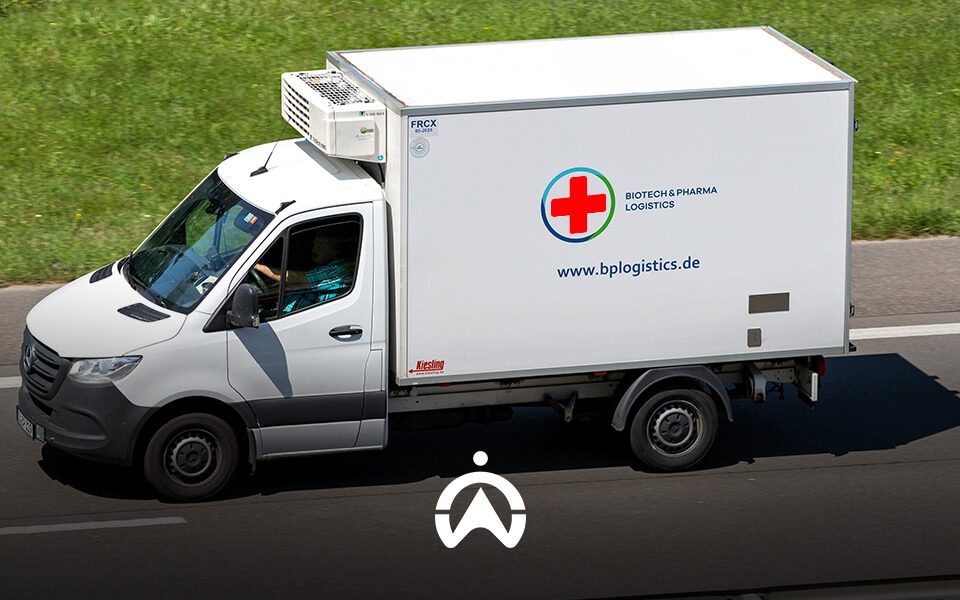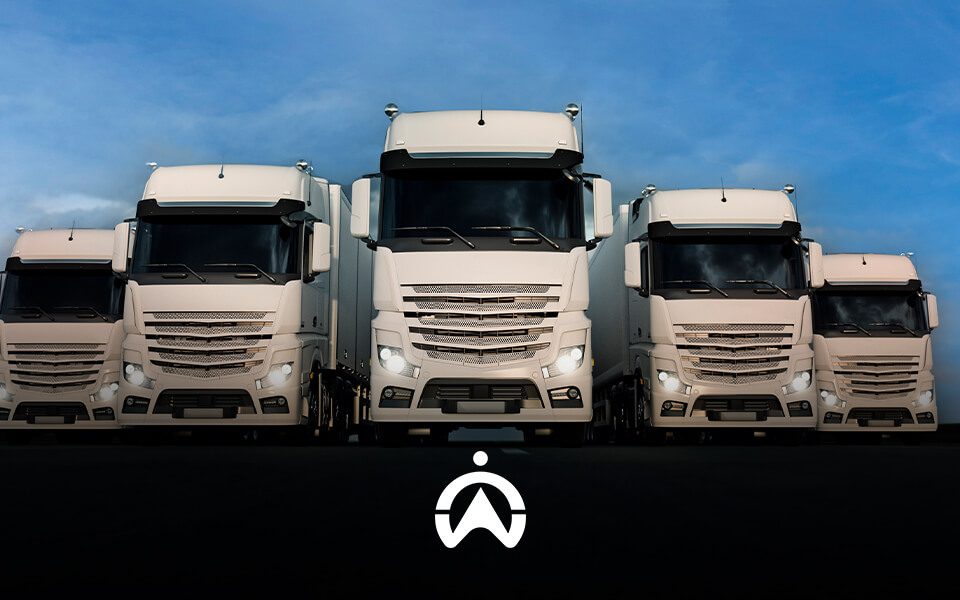The Best Fleet Management Software For Your Construction Business
Ever wished for the perfect assistant to effortlessly handle the ins and outs of your construction fleet? Well, meet the ultimate candidate for the job – Cartrack Namibia.
Stay tuned as we delve into the features and benefits of fleet management software and find out what makes Cartrack Namibia the ideal co-pilot for managing your construction fleet.
In this article, you will:
- Uncover the construction fleet management essentials
- Distinguish between construction fleet managers and project managers
- Understand the challenges of not having a fleet management tool
- Learn why fleet management software is a must-have for construction companies
- See what makes Cartrack Namibia your ideal fleet management solution
What is construction fleet management?
The construction fleet management process involves managing a fleet of vehicles and equipment used for various tasks in the construction industry.
For example, heavy-duty equipment such as excavators and bulldozers are designed to tackle big excavation and earthmoving projects, and smaller vehicles like dump trucks ensure that materials are transported to and from the site efficiently. These are all extremely valuable assets and poor management of them could cause project delays, safety risks or even increased downtime, impacting your construction business’s bottom line.
This is why construction fleet managers play a vital role. They help ensure the safety and efficiency of drivers, vehicles and the construction site itself. To effectively do this, fleet managers need to track their fleet performance on a day-to-day basis so they can identify areas where improvement is needed or where risk concerns should be addressed, and put systems in place to correct these.
Construction fleet manager vs construction project manager
Much like any fleet manager, a construction fleet manager is responsible for coordinating all aspects of the fleet, from route planning and fuel management to vehicle maintenance and repair. They manage the use, maintenance, and operation of construction vehicles and equipment, ensuring that each vehicle receives necessary maintenance to prevent issues or major repairs that could be costly or add to safety risks.
Apart from their vehicles and equipment, they also oversee;
- Driver training
- Safety protocols on site
- Compliance with industry standards and regulations
- Managing fleet costs
Additionally, construction managers are in charge of coordinating vehicles around the site, deciding on vehicle placement based on the type of project for better efficiency, managing fuel logistics and ensuring operations are streamlined.
Construction project manager
Construction project managers, on the other hand, seem to handle aspects of construction from behind the scenes.
A construction project manager is tasked with organising and supervising all stages of a construction project, ensuring it runs smoothly from start to finish. Their responsibilities include creating project plans, managing budgets and resources, collaborating with contractors, obtaining required permits, and ensuring compliance with regulations. Ultimately, their role is crucial in guaranteeing that projects are completed on schedule, within budget, and meeting specified quality and safety standards.The responsibilities of a project manager overseeing the construction of a new office building for example would include:
- Creating a detailed project plan and executing it
- Obtaining required permits and approvals from local authorities
- Recruiting and supervising a team of contractors and subcontractors
- Asset usage monitoring
- Tracking project progress and making adjustments as necessary
- Ensuring timely, budget-friendly, and satisfactory project completion
In summary, a construction project manager is the driving force behind the successful execution of complex construction tasks and projects.
Roles and responsibilities for a fleet manager in construction
Fleet managers in construction are responsible for overseeing and managing the company’s entire fleet, including vehicles, equipment, drivers, and cargo. This involves ensuring the efficient operation of the fleet and implementing essential practices for improvement.
- Acquiring and liquidating vehicles
Fleet managers must meticulously assess the company’s requirements when buying new vehicles. Factors such as the nature of construction projects, fuel efficiency, operational conditions like weather and terrain, and budget constraints are all taken into account. When it comes to older assets that are continuously being serviced and are costly to repair, fleet managers are tasked with disposing and upgrading vehicles in a cost-effective and environmentally conscious manner. Options may include auctioning, trading for newer models, or charitable donations.
- Vehicle maintenance and servicing
Ensuring the proper upkeep of all vehicles is crucial for fleet managers to sustain optimal conditions and prolong their lifespan. This involves creating and adhering to maintenance schedules, monitoring mileage and usage, and promptly addressing potential issues.
- Safety
Prioritising driver and vehicle safety is a paramount responsibility for fleet managers. They institute and execute safety programs, monitor and manage driver behaviour, and ensure vehicles are well-maintained with requisite safety features. Conducting safety audits and inspections to identify and rectify potential hazards is also part of their duties.
- Monitoring fleet performance
Fleet managers routinely monitor fleet performance to pinpoint areas for enhancement. This involves tracking fuel and maintenance costs, asset usage, activity and vehicle downtime. Implementation of software for data collection and analysis aids in identifying trends and patterns.
Beyond these responsibilities, fleet managers also conduct tasks like inventory tracking, material procurement, and coordinating deliveries. They may also supervise the loading and unloading of vehicles and equipment, ensuring proper storage and security for all materials and equipment.
.png)
Why choose fleet management software
Construction fleet management involves managing all equipment and vehicle assets for construction and building projects, including trucks, vans, and specialised construction machinery such as excavators, loaders, and cranes, and being in charge of all this can sometimes be overwhelming. A small oversight might jeopardise either the safety of your drivers or other civilians on sight. This is where fleet management software comes in, it assists construction fleet managers in ensuring there is no stone left unturned.
Which management technologies are needed in a construction company?
There are several fleet technologies out there that can provide a special set of benefits depending on your business model and industry. The needs of the business often determine the specific features that your construction fleet requires. For example, a business that is concerned about safety may want to choose a system that includes camera software like dashcams, while a business that is concerned about fuel efficiency may want to choose a system that includes fuel monitoring software.
Here are a few fleet management technologies that would benefit a construction business:
Telematics: Telematics systems offer detailed insights into vehicle performance and driver behaviour. They can monitor fuel consumption, engine diagnostics, harsh braking events, and other crucial metrics. This information helps pinpoint areas for improvement, provides coaching on safer driver practices, and reduces the risk of accidents or breakdowns.
Geofencing: Construction managers can use geofencing to create virtual boundaries around specific areas like job sites or restricted zones. When a vehicle enters or exits these zones, fleet managers receive alerts. This feature prevents unauthorised vehicle use, ensures compliance with safety protocols, and tracks vehicle movements for payroll or billing purposes.
Dashcams: Mounted on the dashboard or windshield, dashcams record the view in front of the vehicle. This footage serves various purposes, from exonerating drivers in accidents to providing evidence of unsafe driving practices and supporting insurance claims.
Fleet management apps or platforms: These apps empower construction managers to remotely access fleet data from their smartphones or tablets. They can track vehicle locations, monitor driver performance, send dispatch notifications, and receive real-time alerts, enhancing overall fleet management efficiency.
Challenges faced without a construction fleet management tool
Fleet managers in construction face a multitude of challenges in planning, organising, and executing construction projects. Without the use of construction fleet management software, these challenges become even more daunting, potentially hindering productivity, increasing costs, and impeding the overall success of projects.
Here’s a quick breakdown of the major challenges that construction managers encounter without proper fleet management software:
- Inefficient vehicle and equipment tracking
Manual tracking of vehicle and equipment locations can be time-consuming and prone to errors, resulting in poor utilisation of resources and increased downtime. Without real-time visibility into the whereabouts of vehicles and equipment, construction managers struggle to optimise scheduling and dispatching, leading to delays and cost overruns.
- Reactive maintenance practices
Without predictive maintenance capabilities, construction managers often rely on reactive maintenance, responding to breakdowns and repairs only after they occur. This reactive approach can lead to frequent equipment downtime, unplanned shutdowns, and increased maintenance costs.
- Poor operator management
Manual tracking of operator schedules, timesheets, and performance metrics can be inefficient and error-prone, making it difficult to ensure operators are properly trained, compliant with regulations, and working productively. Inadequate operator management can lead to safety hazards, productivity loss, and increased labour costs.
- Lack of data-driven insights
Without access to real-time data and analytics, construction managers lack the insights needed to make informed decisions about fleet utilisation, maintenance schedules, operator performance, and cost optimisation. This lack of data-driven decision-making can lead to inefficiencies, resource misallocation, and increased project costs.
- Increased safety risks
Manual tracking of safety incidents and near misses can be ineffective in identifying and addressing safety hazards. Without a safety system in place, construction managers struggle to prevent accidents, reduce injuries, and maintain a safe work environment.
- Limited communication and collaboration
Manual communication methods, such as phone calls and emails, can be slow and inefficient, hindering communication and collaboration between construction managers, operators, and other stakeholders. This lack of real-time communication can lead to delays, misunderstandings, and missed opportunities for improvement.
For example, a construction manager may not be aware of a change in the project plan, leading to delays and rework if the operators are not informed promptly.

The best fleet management tool for any construction business
If you’re looking for a fleet management solution for your construction business and prefer a tool that can provide you with real-time GPS tracking, mileage tracking and reports, asset management, and more, all on one platform — then Cartrack Namibia is the solution you’ve been searching for.
Whether your business falls under construction field services, oil and gas mining or the transportation and logistics industry, Cartrack Namibia provides various features, services and packages to perfectly suit your business model.
How Cartrack’s solutions can assist in efficiently managing your fleet
Cartrack Namibia has all the features a construction fleet manager would need to properly run their fleet, no matter the job.
- AI cameras
Enhance your fleet’s safety with AI-powered cameras, featuring up to eight internal and external cameras with in-cabin audio. These help boost the safety of your drivers, vehicles, and cargo, as drivers can receive real-time audible alerts of potential issues, allowing them to quickly rectify risky driving behaviour and prevent collisions. Our cameras also provide video footage for driver accountability during events or accidents, this can also be used to further train and educate drivers.
- Monitoring sensors
Cargo door sensors: Monitor the drop point of the delivery and stay informed about cargo security by receiving instant notifications the moment cargo doors open or close. This feature ensures that only authorised persons can access your cargo area, helping to keep your valuable cargo safe.
Drum rotation sensor: Tailored for cement trucks, our sensors monitor the speed and direction of your truck’s drum rotation. This functionality guarantees that your cement remains well-mixed, meeting the expected quality standard.
- Asset management
Cartrack’s asset management allows you to keep track of your asset’s utilisation in real time. Effectively schedule your equipment remotely across various project sites, preventing over or underuse of your assets for optimised fleet performance.
- ID Tags
Be informed of who is behind the wheel with our ID tags. A tag is assigned to each driver in your fleet to easily identify which drivers are operating your vehicles. These tags along with our Start Prevent feature ensure that only authorised personnel operate your assets.
“Using Cartrack’s advanced fleet management we have been able to increase our operational efficiency to deliver a better service to our customers, as well as effortlessly establish a maintenance cycle that reduces our costs and increases our fleet longevity.”
Gareth Langley, Operations Manager at Concord Cranes
Concord Cranes faced challenges in precisely logging the operational hours of their cranes, impacting their ability to meet client delivery schedules. This obstacle prompted the search for a more efficient solution.
We’ve helped Concord Cranes along with +110,000 other businesses in streamlining their construction fleet and optimising productivity, let us help your business.
Trust Cartrack Namibia with your construction fleet management needs
Construction operations are fast-paced, involving various job sites, a range of assets, and mobile crews. Count on Cartrack Namibia to monitor all your heavy equipment from vehicles to powered trailers, and other assets in your arsenal.
Get in touch with Cartrack Namibia with the industry experts.




